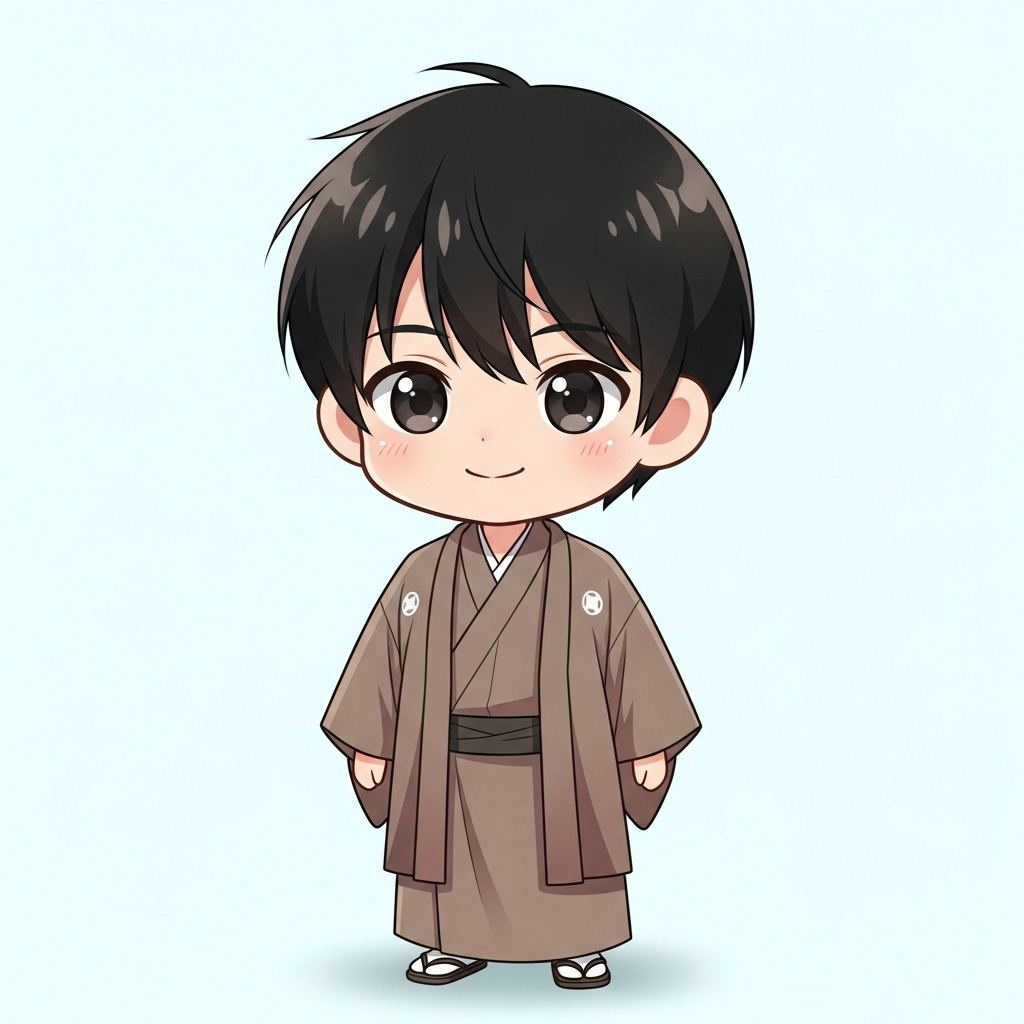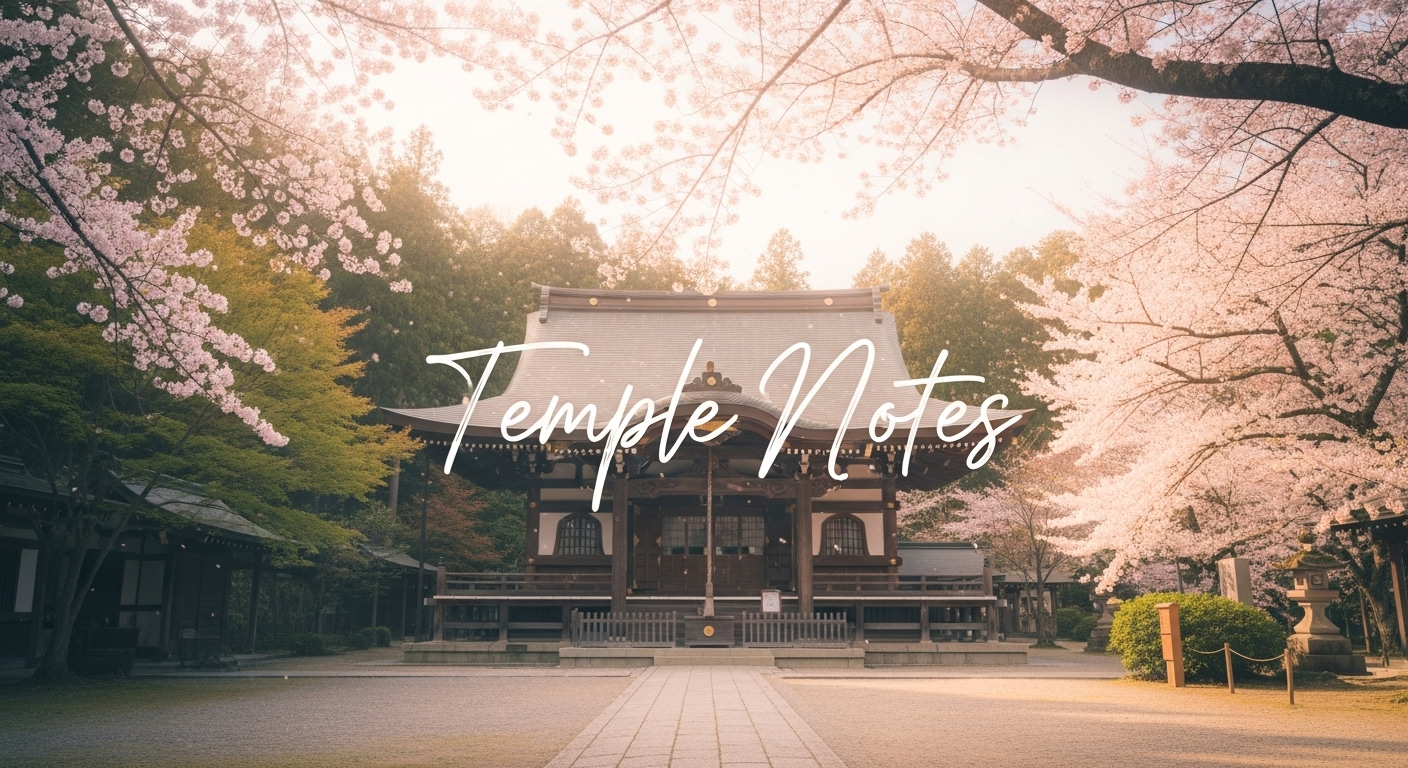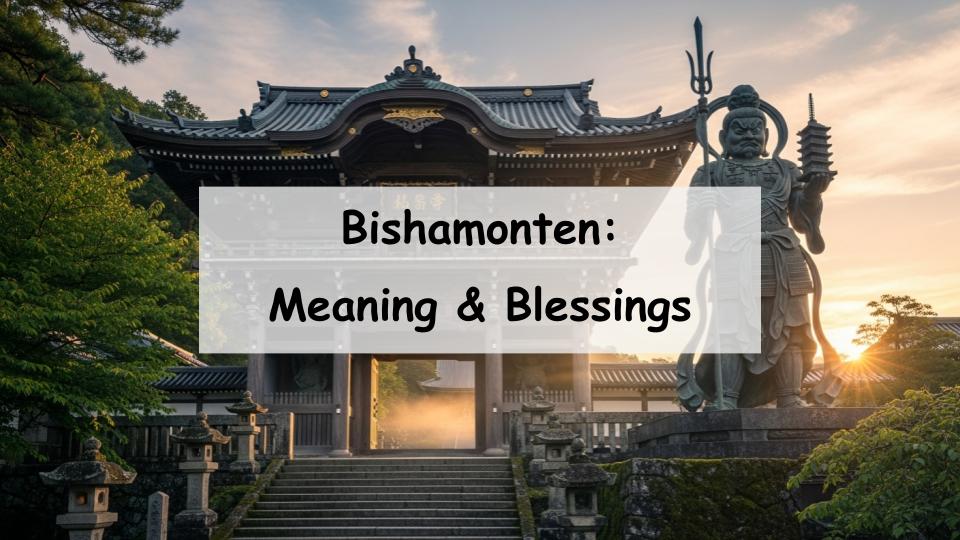Even if you have heard the name Bishamonten, many people still wonder: “What does it mean?”, “Why is it worshipped?”, and “What blessings does it offer?”. In short, Bishamonten originated in ancient India as a guardian deity, and in Japan it is revered as one of the Seven Lucky Gods, known for bringing protection from misfortune, prosperity, and victory in battles or competitions. In this article, we will explore the meaning and origins of Bishamonten, the history of its worship, the blessings it is believed to grant, and the temples where it is enshrined. By the end, you will gain a deeper understanding of Bishamonten and the significance of its faith in daily life.
What is Bishamonten? Its Meaning and Role
The Origin of the Name Bishamonten
The name Bishamonten is a phonetic rendering of the Sanskrit word Vaiśravaṇa. In Chinese and Japanese, the sound was transcribed as 毘沙門 (Bishamon) or 多聞天 (Tamonten, “he who hears much”). Over time, it became established as a divine name symbolizing wealth, protection, and guardianship.
Bishamonten’s Role in Buddhism
In Buddhism, Bishamonten belongs to the Tenbu (heavenly deities) who protect the Dharma. He is the guardian of the north and is often depicted wearing armor, holding a spear, and carrying a pagoda. These attributes symbolize his power to ward off evil and protect both the Buddha’s teachings and human beings from harm.
Bishamonten as One of the Seven Lucky Gods
In Japan, Bishamonten is also known as one of the Seven Lucky Gods (Shichifukujin), worshipped for his powers of wealth, protection, and success. Within this pantheon, he embodies fortune in battle and business, blending Buddhist guardian traditions with local folk beliefs about prosperity and good luck.
The History and Origins of Bishamonten
Origins in Indian Mythology
Bishamonten traces back to Indian mythology, where he was associated with Kubera, the god of wealth, and the Yaksha spirits. When incorporated into Buddhism, his identity expanded to include the role of a powerful protector who combines both wealth and defense.
Transmission to Japan via China
As Buddhism spread from India through China, Bishamonten’s identity was reshaped, blending with Taoist and folk elements before reaching Japan. By the Nara and Heian periods, temples had begun to enshrine him as a protector deity, and his worship became a recognized part of Buddhist practice.
Spread of Worship in Japan
In Japan, Bishamonten became particularly popular among warriors and merchants. Samurai prayed for victory and long-lasting fortune in battle, while merchants revered him as a deity of prosperity. Over time, his worship spread widely through temples, festivals, and household altars, embedding him in the cultural fabric of Japan.
Faith and Blessings of Bishamonten
Protection Against Evil and Misfortune
Bishamonten is revered as a guardian who drives away demons and wards off misfortune. His fierce and armored appearance symbolizes his ability to protect believers from disasters, illness, and bad luck. Many turn to him during periods of uncertainty or personal hardship.
Wealth and Prosperity
As a god of treasure and fortune, Bishamonten is also worshipped for blessings of prosperity. Merchants and business owners often seek his favor for financial stability and success. His inclusion in the Seven Lucky Gods pilgrimage makes him a popular figure during New Year’s celebrations for attracting good fortune.
Success in Battles and Competitions
Bishamonten’s role as a bringer of victory extends beyond warfare to modern challenges such as sports, exams, or business ventures. People pray for his support in moments of competition and decision-making, believing in his power to ensure favorable outcomes.
Samurai and Bishamonten
One of the most famous historical devotees of Bishamonten was the warlord Uesugi Kenshin, who considered himself an incarnation of the deity and prayed for his blessing in battle. Bishamonten thus became closely tied to military success and the ideals of courage and protection among samurai.
Temples Enshrining Bishamonten
Famous Bishamonten Temples in Japan
Numerous temples across Japan enshrine Bishamonten, each with its own traditions and history. These temples often developed under the patronage of warriors or merchants who revered Bishamonten’s blessings. Visiting them provides insight into the local variations of his worship and the deep cultural significance he holds.
Customs and Etiquette of Worship
When visiting a Bishamonten temple, it is customary to purify yourself at the water basin, bow at the temple gate, and then offer prayers in front of the deity. Simple, heartfelt wishes are encouraged. During New Year’s, people often include Bishamonten in their Seven Lucky Gods pilgrimage to invite good fortune for the year.
Bishamonten in Modern Faith
Everyday Presence of Bishamonten Worship
Even today, Bishamonten is present in Japanese households, businesses, and daily practices. Shops may keep talismans of Bishamonten for prosperity, while individuals carry charms for protection and success. His faith has transcended purely religious boundaries, becoming part of cultural customs and daily life.
Bishamonten as a Source of Spiritual Power
In recent years, temples enshrining Bishamonten have also gained popularity as spiritual “power spots.” Visitors seek not only blessings of fortune but also peace of mind and renewed energy through the atmosphere of sacred sites. The faith in Bishamonten continues to adapt to contemporary spiritual needs.
Conclusion|The Truth of Bishamonten’s Faith
Summary of Meaning, Origins, and Blessings
Bishamonten originated in India, traveled through China, and took root in Japan as both a Buddhist guardian and a folk deity. He is worshipped for protection, wealth, prosperity, and victory, and his armored figure symbolizes the power to ward off misfortune and defend the faithful.
The Significance of Faith Today
In modern times, Bishamonten’s worship is more than an ancient tradition—it serves as a source of comfort, encouragement, and community connection. His blessings are not limited to material wealth or victory but extend to providing inner strength and resilience. Understanding Bishamonten allows us to see how faith and culture intertwine in everyday life.
Through exploring Bishamonten’s meaning and history, we gain not only knowledge of a powerful deity but also insight into the role of faith in shaping human hope and resilience.
A Message from the Guide

On Uesugi Kenshin’s battle flags, the character “毘” was boldly inscribed, clearly showing the depth of his devotion.






Comment